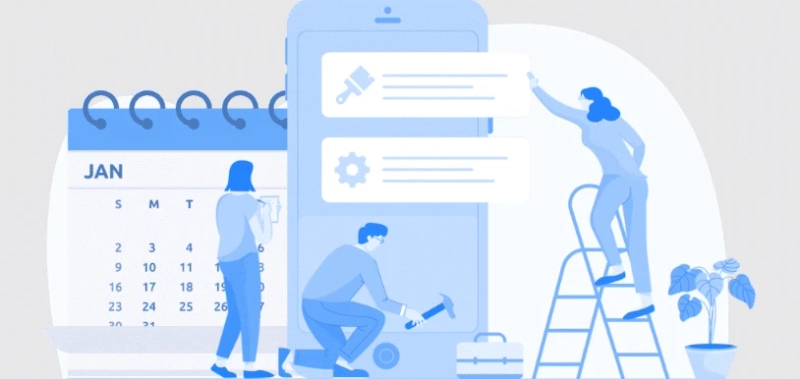Mobile app owners should stay updated on their app's essential legal concerns and ramifications. It is really no surprise that mobile applications have taken control over our existence; they are everywhere, and there is a growing desire for quicker and more effective mobile applications. From grocery shopping to seeking medical treatment, mobile apps offer new means to access products and services across the world.
Besides the rise in user activity and demand, creating a mobile app is more than just coming up with a brilliant concept. You need to build it to attract more customers and generate revenue. Apart from integrating the advanced practices and technologies, you must adhere to several legal difficult things if you wish to create a long-lasting and secure mobile application.
This is what we are going to discuss in our today’s article. Here we will share some legal things you need to consider while creating a mobile app. So, continue reading it. However, it is recommended to hire an Expert App Developer in Dubai to build a flawless and secure mobile app.
5 Legal Things To Consider While Creating A Mobile App:
Following are the five legal things you should consider while developing a mobile app.
Intellectual Property Rights
All unique and generated content is included in the development process. Selling and implementing your mobile application is referred to as IP rights (IP). You should create original layouts, visual material, application logos, symbols, textual information, and system software during the creation of your mobile application.
Any of these aspects are considered Intellectual Property Rights, and it is yours if they are real. You need to register the trademarks, copyrights, or patents to protect your data. But, it depends on the type of intellectual property your app is dealing with.
Terms Of Use And Privacy Policy
Mobile app developers and their clients engage in a signed contract known as the Terms of Use. Whenever a user installs and operates your mobile application, they automatically agree to this contract. It explains what the application is, how the owner should use it, what comprises incorrect or illegal application usage, and the penalties of such misuse.
Whereas, the privacy policy is required if your mobile app gathers personal information like identities, email accounts, or contact information. Your app's privacy statement should describe how and why it will keep and utilize a user's data.
End-User License Agreement (EULA)
To safeguard the intellectual property of your mobile app, you should do an agreement with the terminal users through your app. The End-User Licensing Deal is the name given to this contract (EULA).
It serves as both an intellectual license and an agreement, implementing a EULA will safeguard your IP and expenditures. EULA can restrict the app developer's responsibility and guarantee that the end-user does not abuse the program in any way.
Confidentiality Agreements
The mobile app development industry is popular for creating and innovating new concepts and technologies regularly. As a result, you need to employ the appropriate confident steps to safeguard IP rights, particularly for extremely innovative software developers.
Confidentiality complications have emerged when you need to give access to the app development team for designing and developing your mobile app. Although it is not possible to protect or restrict access, a confidentiality agreement is prudent to take steps to guarantee that information of your app and company is protected.
App Store Agreements
You must notify your customers that your application is accessible after it has been completed and is ready for launch in app stores. App stores distribute mobile applications and distribute them to ultimate customers. These app stores frequently ask creators to sign a licensing contract, in which they accept the terms and conditions of the stores.
Some retailers are more restricted than others because the complexities and criteria of license agreements differ. It might influence the development process of your apps, specs, and delivery. Hence, it's critical to be aware of such regulations and modify them accordingly.
Conclusion:
The bottom line is that mobile development procedure requires different rules and restrictions to follow, ranging from copyright legislation to data protection laws to app store contracts. All of these vary based on the kind of mobile application you want to create. But, you have to consider the legal considerations mentioned above while building a mobile app. Last but not least, you should get in touch with a Freelance App Developer MisterSaad to develop a fully secure mobile app.
0


